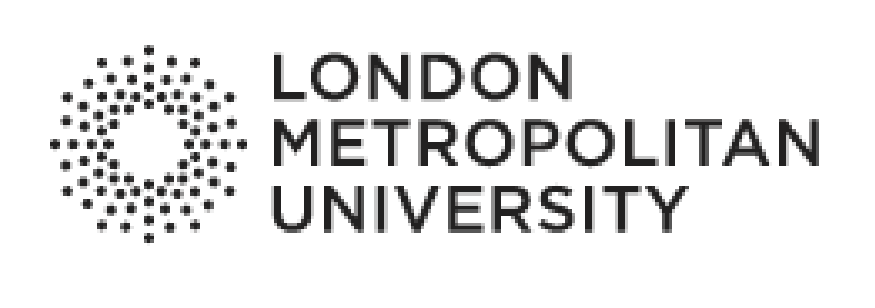Leading the way on inclusive learning
Why London Metropolitan University's Vice Chancellor is committed to driving change

Positioned in one of the world’s richest cities, London Metropolitan University serves some of the UK’s most diverse students. The University leads the way in fostering inclusion in British higher education because tackling inequality is central to its mission, Vice-Chancellor and CEO, Professor Lynn Dobbs, told Chronicle editor Liz McMillen in a webinar on global leadership earlier this month.
London Metropolitan is a public university that caters to almost 10,000 students, many from non-traditional or disadvantaged backgrounds. One hundred and forty-seven nationalities are represented in its student body, with 63% coming from Black, Asian or Minority Ethnic (BAME) backgrounds.
It recently implemented a series of wide-ranging changes to support BAME students and staff — measures that form part of its driving purpose, as Professor Dobbs explained. Achieving race equity in education is particularly close to the Vice-Chancellor’s heart. “I have never felt so passionate about anything in my professional career,” she said. “It’s a really important roadmap that we’re setting out for the University.”
As part of its strategic approach, London Met has taken clear stances on issues of racial equity. It is the first university in Britain to adopt the definition of Islamophobia developed by the All-Party Parliamentary Group on British Muslims. This definition identifies Islamophobia as a form of racism that targets “expressions of Muslimness or perceived Muslimness.” Anyone found to be engaging in Islamophobic harassment will be subject to disciplinary measures, Professor Dobbs said. It has also adopted the definition of antisemitism developed by the International Holocaust Remembrance Alliance (IHRA).
The University’s leaders took a stand on historic racism during the Black Lives Matter protests last year, when it became apparent that Sir John Cass, a 17th century politician and merchant after whom its School of Art, Architecture and Design was named, had been involved in the slave trade. Professor Dobbs decided to change the school’s name—which met with a warm response. “It was non-negotiable,” she said. “Our Black, Asian and Minority Ethnic colleagues deserved us to make that decision.”
To tackle inequity within the institution, Professor Dobbs has created a new position of Pro Vice-Chancellor for Outcomes and Inclusion. The role is dedicated to embedding inclusion in the curriculum, informing the University’s investment decisions and challenging exclusionary practices. London Met is also forging links with historically Black colleges and universities in the US, hoping to learn from their achievements, and build connections between students and staff across the Atlantic — connections Professor Dobbs hopes to strengthen as the pandemic recedes.
A personal mission
Professor Dobb’s commitment to equity and inclusion stems from her own non-traditional path. She grew up on a housing estate in a deprived town in the Northeast of England, and left school when she was 16, getting married shortly afterwards. It was only in her thirties that she went to university to study, pursuing a degree in politics at Northumbria University. She remains, as far as she knows, the only person from her estate to get a degree.
Her late start only bolstered her commitment to learning. “I was obsessed with it,” she said. She went on to get a lectureship at Northumbria, where she set up a Center for Public Policy which undertook important research into social exclusion, deprivation and poverty.
This experience has left her profoundly aware of the needs of non-traditional students. She recalled that she initially chose to study politics because the tutor had altered the timetable to allow her to attend, and she needed university to fit in around her life.
“People will say, ‘It doesn’t matter what the timetable looks like, the students will be able to fit everything in,’” she said, "but I know what it’s like. When I was going to university, I had a baby and a toddler and a job.” The experience of juggling lots of different commitments means she understands the extra mile that lots of London Met students go to gain their qualifications.
Lessons from crisis
As a former lecturer and professor at a research center, she also understands the challenges faced by staff, a factor that became paramount when the pandemic hit. “We’ve got really committed staff,” she said. “I am very worried about their stress and anxiety levels and it's been particularly problematic for those who have delivered classes from home, with children needing home schooling.” To help beleaguered employees, the college increased holidays, instituted a “no meetings” week, and put a range of mental health support in place.
In the early days of the pandemic, Covid-19 ravaged the UK’s capital, and the city had some of the highest infection and death rates in the country. Professor Dobbs, as Vice-Chancellor, was ultimately responsible for the health and safety of the University community. She set up a taskforce and put measures in place to protect staff and students. When classes went online, laptops and dongles were distributed to those who needed them. There have been no cases of on-campus transmission, she said.
“Our student body, as I mentioned, is not a traditional student body. There are a lot of mature students with caring responsibilities, some of whose families suffer from ill health. This meant that they were frightened to come into the University. Many staff too were having to travel a long way on the tube, or had their own health problems,” Professor Dobbs explained. “So, we went early and hard in introducing measures to protect staff and students.”
While the pandemic has proved challenging for a number of students Professor Dobbs said they appreciate the University’s efforts, and as the UK transitions out of lockdown, there are lessons to be taken forward. Blended learning models are likely to become more common. Previously staff were resistant, but they have come to value remote learning, particularly in a city where long commutes are the norm. “The idea that you wouldn't need to travel in every day is very attractive to many staff,” she observed.
And despite the difficulties of 2020, enrollment has remained strong, rising by 12% in September continuing what Professor Dobbs said is a long-term, upward trend.
Meanwhile, the Vice-Chancellor is set on looking forward, adapting and innovating as conditions require, and providing leadership on critical issues both in the University and beyond. After all, crafting a vision for how things can improve is part of her role. “As a university leader it's my job to plan the future,” she said.



